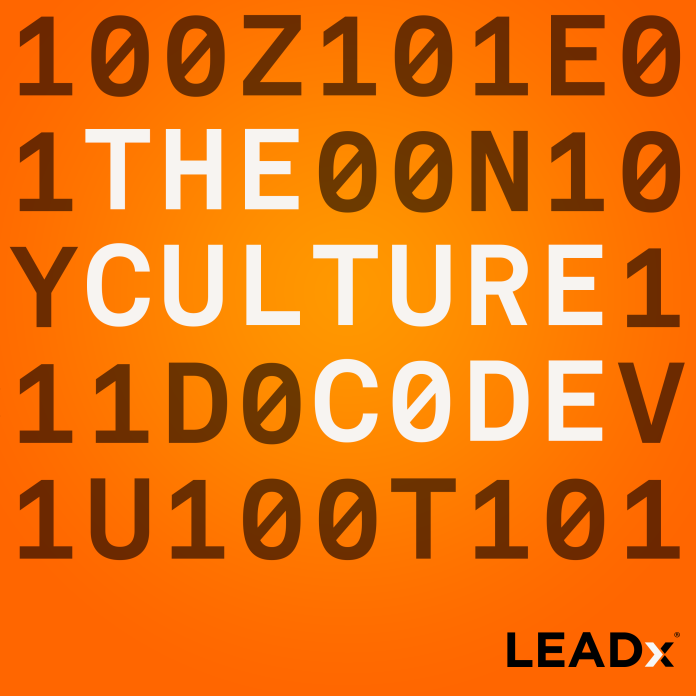
It’s nearly impossible to overstate the importance of first-line leaders. Foster the growth of your first-line leaders and you’ll
- improve engagement for the majority of your employees (they lead 80% of a company’s employees),
- build a pipeline of leaders who are prepared for promotion (they comprise 60% of a company’s leadership), and
- stay connected to the work happening on the ground with your customers.
In his article titled “The Frontline Advantage” published in the Harvard Business Review, three-time Big Pharma Chief Executive Officer (CEO) Fred Hassan stated, “It is the frontline managers who must motivate and bolster the morale of the people who do the work—those who design, make, and sell the products or deliver services to customers. These managers are central to a company’s business strategy because they oversee its execution. They represent an all-important feedback loop.”
When I recently had the opportunity to interview Chief People Officer (CPO) of Box Jessica Swank, she aptly compared frontline leaders to player-coaches. In addition to breaking down the ways that she and her team support first-line leaders, she discussed Box’s culture in general and other crucial ways that she scales and sustains it.
Box is a leader in the content cloud space. Its business tools offer a highly secure and structured way to share, access, and manage content. Box currently operates with 2600 employees, or Boxers, as they call themselves.

Box Develops Culture by Improving Its First-Line Leaders
“The first-line leader is one of the most challenging roles in any organization,” Swank shared. “Managers are not just managers. They are both player-coaches and managers with their own deliverables. In these challenging times, managers have to filter, communicate, and deliver on both the personal and the professional. It’s immense,” she said.
To support her first-line managers in their pivotal role, she implements several key activities:
- Swank and her team host a monthly Manager Power Hour, an hour-long session focused on first-line leaders. “It's full of what is going on at Box, what managers need to know, strategy, and enablement.”
- Swank’s team creates and delivers a bi-weekly manager newsletter.
- First-line leaders have a Slack channel for their questions.
- Swank’s team conducts focused development programs and coaching for first-line leaders.
- Swank and her team deliver a management accelerator program named Accelerate for new managers. If you’re a new manager at Box, even if you have external managerial expertise and experience, Box puts you through a robust, 6-month program that includes training, coaching, and enablement.
Moving forward, Swank is working on tailoring manager training by location. “One of our challenges is that success at Box looks different in the US compared with our office in Japan or elsewhere,” Swank explained. “We're working on understanding the commonalities and how we can support local managers with local issues in a customized way.”
Founder-Led Culture at Box
Swank was rightfully hesitant to try to break down Box’s culture into words. She did, however, offer several tenets:
- Founder-led. “Our CEO Aaron Levie and our CFO Dylan Smith are co-founders of Box. Their presence has been integral to the mentality, scale, and growth of our startup,” Swank said.
- GSD or “getting ‘stuff’ done”. “We deliver, and we have a strong drive,” Swank highlighted.
- Focus on culture, people, and communities.
- Fun. “We laugh. It's a very open, transparent culture, which makes the hard work a lot more enjoyable,” Swank said.
Culture at Box Is Underpinned by Strong Values, Emphasis on Belonging, and Transparency
To scale and sustain Boxer culture, Swank broke down three key strategies:
Strong, embedded values – Swank said, “We have seven values that are absolutely embedded in everything that we do.” She went on to explain how she embeds these values in how they hire, develop, promote, and compensate their talent. “Even in our performance management, we explore the ‘what’ and ‘how’ with the underpinning of those values.”
Commitment to creating a sense of belonging – “Our commitment to belonging at Box is about welcoming diverse voices and creating a sense of inclusion. But it is also that real warm sense that no matter where you are and what you're doing, you feel like you have a place and that you're seen and heard here at Box,” Swank said.
Transparent, open, and collaborative – Swank attributed the success of Box culture to a sense of ownership pervading the organization. “Everyone has the sense that they are a part of this. It is up to each of us to ensure that we're exemplifying, adding to, and building our culture. That means not only reflecting on what it's been but also thinking about where we want to go,” she said.
Swank’s Book Recommendation: Think Again
Swank’s top book recommendation was Adam Grant’s Think Again. “Yes, it’s a book, but it’s also a way of thinking,” Swank explained. “It's about questioning your assumptions, biases, and approach. The book teaches great framing. I use that thought experiment often in my day-to-day.”


